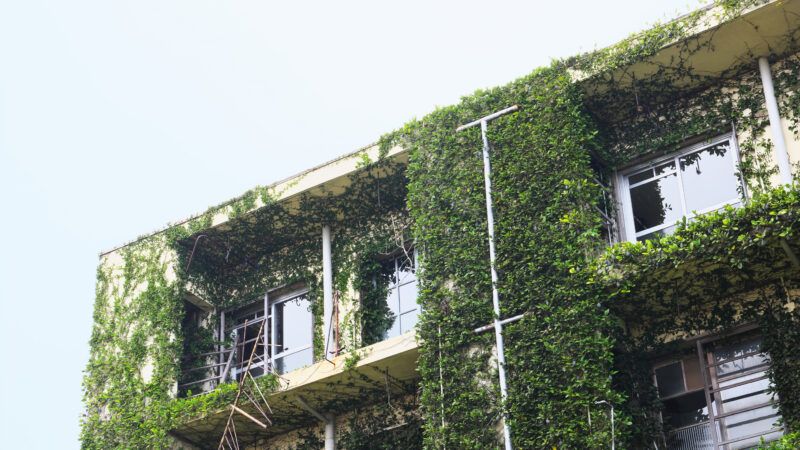Landlords Sue Over City-Mandated 15 Percent Rent Cut
Property owners in Kingston, New York, argue the city is vastly underestimating its vacancy rate in order to justify ruinous rent cuts.

To alleviate an alleged housing emergency, officials in Kingston, New York, are mandating a 15 percent reduction in rents. Rental property owners are now suing the city, arguing it failed to meet state requirements for adopting rent control and that the ordered rent reduction amounts to retroactive punishment.
"It's going to bankrupt many [landlords]," Richard Lanzarone, executive director of the Hudson Valley Property Owners Association (HVPOA), says of Kingston's Rent Guidelines Board decision last week to reduce rents by 15 percent for leases signed between August 2022 and September 2023. "If it stands, it'll lead to abandonment, tenant displacement, blight, and the destruction of housing."
In July, Kingston became the first city in the state to take advantage of a 2019 New York law allowing communities outside New York City and its surrounding counties to adopt rent stabilization. That law allows localities to regulate rent hikes in larger multifamily buildings constructed before 1974. About 1,200 apartments in Kingston fall under rent stabilization.
Tenant activists say this is the first time a New York municipality has voted to cut rents. While they pushed for a whopping 30 percent rent reduction, activists still took a victory lap at the 15 percent cut.
"This reduction represents a paradigm shift in how we address the needs of the many over unregulated market conditions," said Michael Tierney, a tenant representative on the board, in a press release.
Property owners are less pleased. Lanzarone says landlords have told him the rent reduction will make their buildings unprofitable or force them into foreclosure.
He tells Reason that today HVPOA is filing an amended complaint against the city in Ulster County Supreme Court, arguing the mandated rent reduction is an arbitrary decision that ignored data showing that operating costs for property owners are rising. Lanzarone also says past case law prevents rent regulations from being imposed retroactively.
That amended complaint is part of an ongoing lawsuit that HVPOA filed in October challenging the legal underpinnings of Kingston's decision to adopt rent stabilization.
New York law allows communities to adopt rent stabilization only if their vacancy rate falls below 5 percent. A city-conducted rental vacancy survey published in June 2022 put Kingston's rental vacancy rate at 1.57 percent.
HVPOA's complaint argues this find is an underestimate produced by a survey that was "deeply flawed, mathematically inexact, factually incorrect, deceptive, and at times embarrassingly unprofessional."
In particular, their lawsuit argues that the 29 percent response rate to the city's survey and the city's practice of counting non-responses as occupied units resulted in a vast undercount of vacant units.
HVPOA's lawsuit says the organization performed its survey with a 100 percent response rate that determined a vacancy rate of 6.22 percent. This matches with a 6.7 percent vacancy rate found by the Center for Governmental Research, a third party the city of Kingston paid to conduct a vacancy survey. The U.S. Census Bureau also found a gross vacancy rate of 10 percent in 2020.
Additional plaintiffs in HVPOA's lawsuit include several apartment owners who claim that they had multiple vacant units that the city nevertheless counted as occupied in its survey. Lanzarone says the city also counted homes it had already deemed uninhabitable as occupied.
The HVPOA lawsuit argues that because the city failed to accurately establish a vacancy rate of less than five percent, the court should strike down its rent stabilization ordinance.
Curbed reports that a judge denied the group's request for a temporary restraining order. Lanzarone says they expect a ruling in the case before the end of the year.
Regardless of the legal outcome, Kingston's unprecedented rent reduction is extreme. New York City's Rent Guidelines Board typically allows rent increases of a few percentage points each year.
Even so, landlords argue that rent-stabilized buildings are being "defunded" by allowable rent increases that don't cover rising operating costs. A September study performed by the Community Housing Improvement Program (CHIP), a landlord trade association, found that this year's allowable rent increases of 3.25 to 5 percent cover less than half of the increased expenses.
The same 2019 law that allows Kingston to adopt rent stabilization also limits the ability of owners of rent-stabilized buildings to pass along the costs of maintenance and capital improvements to tenants.
A 2021 New York City-conducted survey found that 42,000 rent-stabilized apartments are vacant. CHIP executive director Jay Martin says that many of those units have fallen into disrepair, and the owner has no financial incentive to bring them back online. The same survey found maintenance issues are twice as likely to occur in rent-stabilized buildings.
This all tracks with longstanding predictions that limiting rising rents to less-than-market rates will lead to a decline in housing quality and, eventually, supply. That seems to be coming true in New York City. The odds are Kingston's even more extreme policies will produce even more extreme results.
